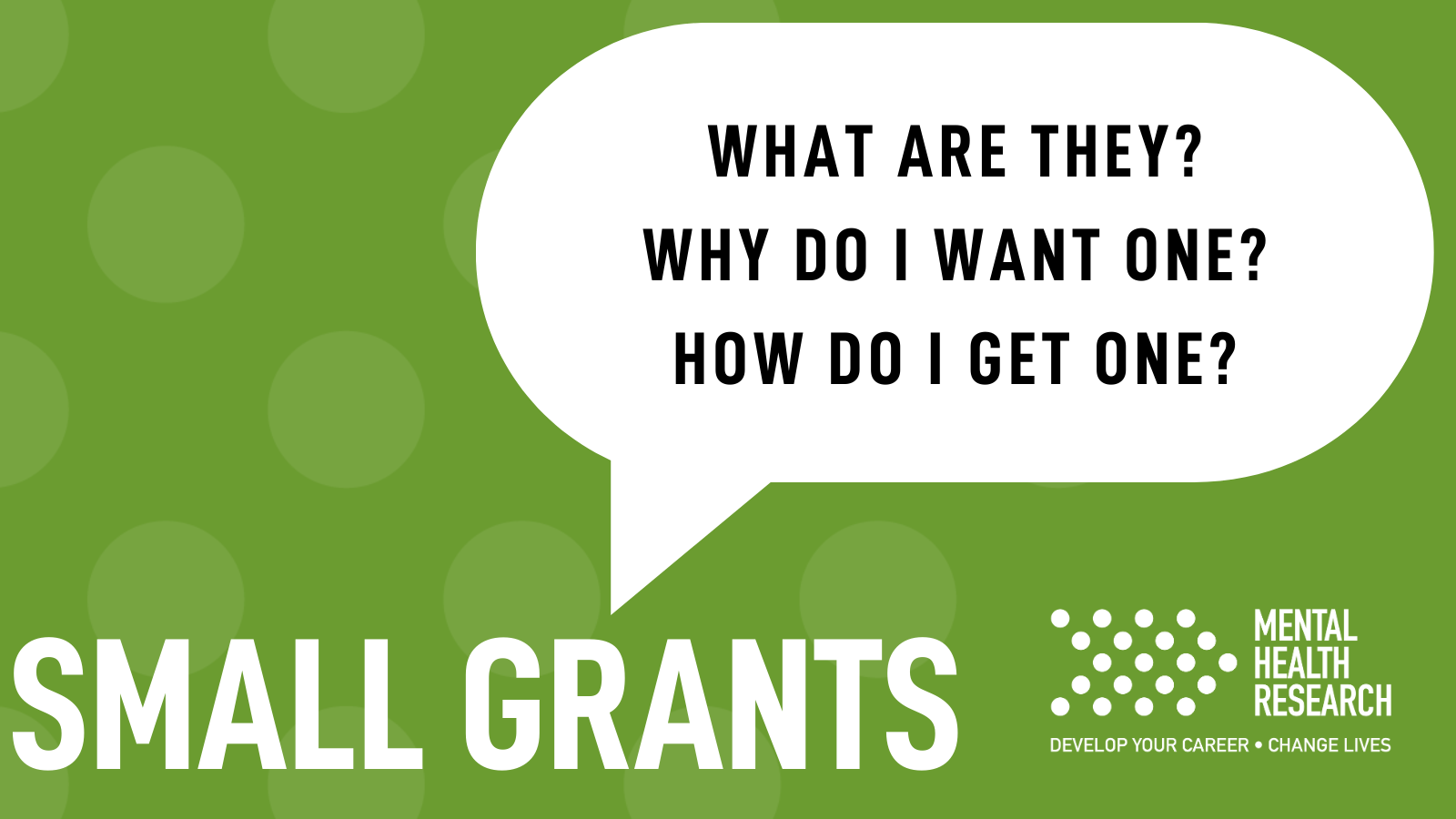
Funding is the bread and butter of research and landing a big grant can set you up for several years of support. However, not all grants offered for mental health research are multi-year ones with thousands, or hundreds of thousands if you are lucky, of pounds on offer.
Does that mean they are not worth your time applying for? No! On the contrary – ECRs should be seeking out the smaller grants as having a track record of winning funding, even small pots, is important to demonstrate for when you go for bigger awards later on.
Small grants are often hard to find – they might be region or institution specific, and they vary in focus, but they are out there.
Categories of support that are usually available:
- Travel grants –
- Sometimes your institution has travel grants they keep quiet.
- Discipline specific funders may provide travel funding, for example Brain, The Charity have grants for neuroscientists/neurologists to travel for conferences and meetings.
- Research Capability funding from your organisation. Many mental health researchers got funding for their first projects through this type of funding.
- This type of funding is also often provided to active NHS Trusts who in turn make it available for staff and external researchers to apply to. Check with your local NHS Trust to see if they have any programmes available.
- Academic institutions also often have small grants available for ECRs to help with larger applications or small projects, so again, worth checking with your institution.
- Funded workshops –
- These are often put on by an organisation and funded for attendees. GROW is an example of this.
- Some organisations provide funding to put on small conferences or meetings, again Brain is one such organization.
Finally, there are some websites that bring together a bunch of grant opportunities. The Royal College of Nursing is one such resource which is really worth checking out:
In addition to grants, there are also programmes and projects that are free and can provide you with a new skill or a chance to focus on an area of your research. Free online resources are becoming more commonly available. They are not always useful, however some we have recently come across which we think are helpful for early career mental health researchers are:
- Training, for specific skills and CV gaps –
- “Research Methods: A practical guide to Peer and Community Research” is another great example as it is a free online course available from King’s College London. Check it out at this link: Research Methods: A Practical Guide – Research Methods Course – FutureLearn
- The NIHR ARC’s for various regions have produced a couple of great resources recently.
- ARC Wessex have produced a series of videos for people getting into research:
- ARC East Midlands have produced a series of guidance modules to help you with implementation science
- UKRI have a resume library specifically to help produce a narrative resume, something now preferred by funders
Have you benefitted from a small grant or know of one we have missed? Hit us up on Twitter!
